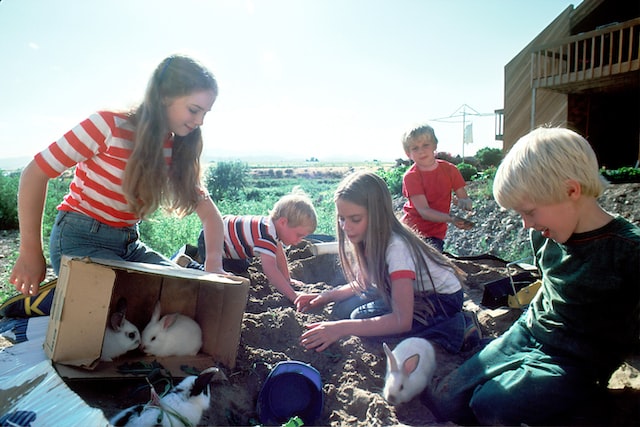ライフハックとしてではなく、英語学習にも極めて有用なのが、著名人が10分程度のプレゼンを行うTEDです。
TED Talksとは、あらゆる分野のエキスパートたちによるプレゼンテーションを無料で視聴できる動画配信サービスのことです。10年ほど前にサービスが開始されてから、政治、心理学、経済、日常生活などの幅広いコンテンツが視聴できることから人気を集めています。
RareJob English Lab
TEDは4000を超える膨大な数の動画があります。しかし慣れないうちは、動画の探し方や視聴のコツが分かりませんよね。この記事では、数多くのTEDを見てきた管理人(塩@saltandshio)が、心を揺さぶられたトークをあらすじと一緒にご紹介します。
ビジネス英会話を効率よく身につけたい方におすすめスクール
シェーン英会話
シェーンは1977年の創業以来、ネイティブ講師が英語を英語で教える「直接教授法」を採用しています。首都圏におけるスクール拠点数は、ネイティブ講師の英会話スクールでNo.1。駅から近いスクールが多いので通いやすく時間を有効に使えます。
スピークバディ パーソナルコーチング
1日1時間の短期集中トレーニングで、あなたの英語力向上をコーチが全力でサポートします。あなたの英語の世界が、劇的に変わります。
ジェニファー・ナシフ:あなたの子どもをやる気にさせる秘訣
ジェニファー・ナシフは自分の子ども達とコミュニケーションする際、子供を操作するのではなく、どのように動機付けしたらよいかを話します。ジェニファーは4人の異なる性格の子ども達を見事に演じ分け、各々の違う性格が 親からの違う反応を必要としている事を明らかにします。それらの対応は、私達の子どもにだけでなく私達が日々出会う人へも当てはまります。ジェニファーはそんな身の周りの人たちの意欲を掻き立て、自信を持たせる、簡単で実行可能な方法を提供してくれます(約12分半)。
[PR]無料体験レッスン実施中!全国208校、創業40年の老舗英会話スクール【シェーン英会話】支配的(Dominant)型の子どもをやる気にさせる
子どもをやる気にさせるとき、たいていの親は「これをしないなら 罰を与えるわよ」と脅したり、「これをしたらご褒美をあげる」と物で釣ったりします。しかし、この方法は短期的には効果がありますが、長期的には予期せぬ影響や結果が出ることがあります。では、脅したり物で釣る事もなく子どもをやる気にさせるにはどうすればいいのでしょうか。
子どもの性格は大きく4つに分類できます。
- 支配的(Dominant)型
- 社交的(Social)型
- 忍耐的(Patient)型
- 分析的(Analytical)型
それぞれに適した方法でアプローチをかけるのが、ジェニファー・ナシフの方法です。順番に見ていきましょう。
最初は支配的(Dominant)型の子供です。支配型はとにかくパワーがあります。欲しいものは要求するのではなく、自分から手に入れるタイプでいわば攻撃型です。自分が正しい、自分が幸せを感じるように、自分でやりたいようにやる。そんなタイプの子どもをやる気にさせるには、パワーを引き出してみましょう。
こう言ったらどうでしょう。「ねえドナ、お願いできる?妹達はあなたの言う事を聞くけど、ママの言う事ももっと聞いて欲しいの。あなたの助けが必要よ。10歳のあなたには大きなお願いだと思うわ。普通は大人にお願いすることなんだけど、あなたにはできると思ってる。妹たちのお手本になってくれる?できるかしら?」
D型の子が断るわけがありません。それは最高の気分になります。
So, why don’t I tell Donna: “Hey Donna, I need to ask for a favour. See, your sisters follow you. I wish they would follow me more, and I need your help. I know I’m asking a lot because you’re just 10 years old. And what I’m asking you to do, well, generally, we ask adults. So I hope you can do this. Can you help me set an example for your sisters? Can you do that?”
What? D is going to resist that? I mean that’s gold to my ears.
D型の子供は、「あなたにしかできない」というアプローチによって、やる気が起きるタイプといえますね。
[PR]まずは無料カウンセリング”続けるため”の オンライン英語コーチ「スピークバディ パーソナルコーチング」社交的(Social)型の子どもをやる気にさせる
社交的(Social)型の子どもは、とにかく楽しいことが大好きなタイプです。困った人がいれば助けたり、人とつながりを持つことにより、満足感を得るタイプです。そんなS型タイプの子どものキーワードは『人間関係と楽しみ』です。S型タイプの子どもは、楽しそうなことに目がないタイプともいえるでしょう。
「ママはただこう言えばいいのよ。例えば、『ほら、あそこに木がたくさんあるけど、すごくいい隠れ場所になるんじゃない?お友達とかくれんぼでもしたらどう?』私がその誘惑に勝てると思う?かくれんぼをしたら、ちょっと前までしていた事なんて忘れてしまうわ私たちが天性を生かしてやる気になったらどんなに自然に うまくできるか見てほしいの」
これが社交的な娘なのです。
My mother could have just come and said, how about if she would have said: ‘Hey look at all those trees, don’t they make amazing hiding places? Why don’t you organize a great hide and seek game?’ You think I’m going to resist that? You think I’m going to want to go back to do what I was doing, when I can do a hide and seek game? See how it flows, how naturally it comes, when we are motivated to do what we were born to do?
So that’s our social [girl].
S型タイプの子どもをやる気にさせたいときは、楽しく感じることを提案してみましょう。
[PR]しちだの魔法ペンなら35日でバイリンガルに!楽天4部門1位の英会話!<七田式>忍耐的(Patient)型の子どもをやる気にさせる
忍耐的(Patient)型の子どもは、とにかく根気強いタイプです。P型の子どもは、プレッシャーに弱く、言い争いも好きではありません。支配的(Dominant)型のD型タイプとは性格が反対で、人々が仲良くしたり、気遣いあっている関係を心地よいと感じるタイプです。調和、安心、優しさ、理解、他人を助けることに対してやる気が起きる子供で、引っ込み思案な子も多いでしょう。
そんなP型タイプの子どものキーワードは『安心感』です。上からではなく同じ目線に立ち、優しい雰囲気を出しながらそばにいてあげて、とにかく気遣ってあげることが大切です。
私のような子どもがいたら覚えておいて。いつも根気強さと愛と理解を示してほしいの。お願いだからプレッシャーはかけないで。うまくいかないから。よろしく。
If you have kids like me, always through patience, love, and understanding. No pressure please. We don’t do well. Thank you.
親がD型タイプだと、P型の子どもの性格は理解しにくいかもしれません。ですが、子どもと自分は別人格だとまず理解することが、お互いの理解につながるでしょう。
[PR]知って得する、知らないと損をする!すぐに役立つ相手に合った「伝え方」のコツ!分析的(Analytical)型の子どもをやる気にさせる
分析的(Analytical)型の子どもは、責任感が強く、とても几帳面で、完璧主義なところがあります。あまりに責任感が強くて、まじめな性格のため、お腹が弱いかもしれません。
私達は心配しすぎちゃうの。私達にやる気を起こさせるのは、秩序や仕組み、知能的な挑戦よ。キーワードは『明確さ』ね。順序立っていて明確な指示があれば私達は張り切るわ。
We are just way too apprehensive. So what motivates us: order, structure, mental challenges. Key word: clarity. Step by step, specific instructions and you will get the best of us.
自分の子どもが分析的(Analytical)型だと感じたら、順番を理論立てて説明してあげましょう。そうすれば、私たちが思う以上に彼らは的確に動いてくれるはずです。
[PR]検定試験合格者累計140万人!スマホ対応☆国家資格ほか資格取得ならSMART合格対策講座まとめ:子供を操作するのではなくやる気にさせよう
どんなに時代が変わっても、親は「子どもが言う事を聞いてくれない」と嘆くものです。その前に、自分の子どもがどのタイプかきちんと見てみましょう。
それはパワーか、人間関係や楽しみか、安心感か、明確さなのか……。何にせよ、子どもを操作するのではなく刺激を与え、やる気にさせるという連鎖反応を起こす事を全ての親御さんにお勧めします。
Is it power? Is it connection and fun? Is it safety? Is it clarity? Be it what it may be, I invite you to create a chain reaction for all parents to change manipulation to motivation.
そのためには、まず親が子どものことを注意深く見つめて、根気強く付き合う必要がありますね。いつの時代も、親に求められることは忍耐力なのかもしれませんね。
英語全文
I’m so excited!
Well, I’m excited not only to be in TEDx San Diego, but to touch on my favorite subject: the secret to motivating your children. I mean we try to motivate, we do [our] best, but generally what do we do? We use fear: “Ah, if you don’t do this, mmm, big punishment.” Or we bribe them: “OK, if you do this, you’ll get this prize, or this payment.” And, well it works, on the short term. But there are ramifications, consequences that we’re not aware of in the long run, when we educate in this manner.
<全文を読む>▼クリック▼
Raise your hands. Everyone, of course!
Now, a harder question: How many of you believe you know,
exactly, how to motivate your children? Don’t worry, don’t feel bad, I don’t see any hands. Don’t take it personally. My studies – I’ve been studying this for more than 20 years – are that less than 2% of parents have the exact answer to this question. The good news is: all of you, by the end of this talk, are going to know, exactly, in one word, how to motivate your children. So, let me start by telling you a real story.
I live in Mexico City and we were at a party, it was a girl’s 10th birthday; my friend has four daughters and they were behaving, not [badly], no, [terribly]! It came to a point that my friend was very tired and went to the four girls: “The four of you come here, either you behave well or we’re going to leave.” Oh, and let me mention, in Mexico the best part of a party is the piñata, the famous piñata. (a figure filled with goodies). No kid wants to leave before the piñata.
So the first daughter stares at her mom and says: “Mom you’re right. I’ve been telling my sisters to behave, but they don’t pay attention, what can I do?” So the mom goes: “Good job, I’m doing well.” The second daughter looks at the mom (She sobs) “I’m so sorry mom, I hate disappointing you, but see, if I don’t do what my sisters say then they think I’m a goody goody, and I always follow you, and then they don’t like me.” “But I didn’t want you to not like me either.”(Sobs) Total depression. She goes to a corner, depressed. She needs therapy, probably, after that. The third daughter stares at her mom: “My mom, beautiful, wonderful ‘preciosa mamita’. “You keep enjoying what you’re doing, of course I’m going to behave.” “I’m having a wonderful time.”
She waits five minutes and guess what she does? She goes back to doing what she [was doing]. And then, the last daughter stares at her mom and she says: “Oh really? Then we leave right now!”
What happened?
Same household, same education, [they were raised in the same place]. Why did they react so differently? You might all say,
“Obvious, they’re different.” So if it is so obvious, why do we so often give one instruction to different people expecting the same outcome? That’s what we’re going to talk about today.
So, what I did is that, all the way from Mexico city, I brought the four girls. And they are going to tell you a bit [about] themselves, and the most important part: what motivates each one of them in several words and in one word.
So let me introduce you to the first daughter. Oh, these are mine by the way. Let me introduce you to the first daughter. Her name is Donna because she’s so dominant. “Hi, I’m a controlling child, yes I am. I know it and I don’t care. I like things done, not fast, super fast. I’m very independent, I like things fast, direct, I have a lot of willpower. I mean, since I was a baby, you know, if I was going maybe 4 hours drive, I didn’t like the car seat, so I would cry. And I wouldn’t stop crying, ‘til the 4 hours were over. I mean, I get what I want. I don’t ask for it, I demand it. I mean, that’s how life should be, no? Let’s get what we want, let’s insist on it. I’m adventurous, I’m powerful. So, what do you think motivates me? OK, challenges? I love being right. I know they say that it’s more important to be happy. I don’t know who says that. I mean come on! Being right is super more important than being happy. Winning and control, very important. But if you can only remember one word, remember this: I need power. I like to feel powerful. So the next time you’re communicating with me, if you [take] away my power, you bring [out] the worst in me. “So If I’m at a party and my mom [says], ‘if you behave [badly], I’m going to take you [away]. Oh really? We’ll see, we’ll see who wins.”
So, the question here is: what should the mother have said? Well, the answer, before creating things, is ask yourselves: what motivates my D daughter? Power. So, why don’t I tell Donna: “Hey Donna, I need to ask for a favour. See, your sisters follow you. I wish they would follow me more, and I need your help. I know I’m asking a lot because you’re just 10 years old. And what I’m asking you to do, well, generally, we ask adults.
So I hope you can do this. Can you help me set an example for your sisters? Can you do that?” What? D is going to resist that? I mean that’s gold to my ears. So we get the first good outcome.
And now I want to introduce you to Sally. Before introducing you to Sally, this is my D daughter. So this is how I’ve become an expert on the subject.
“Hello, I am Sally the social [girl]. I’m a happy kid, I love fun, I love doing happy things, and connecting with people, talking to people, knowing people. Is there anything else in life than knowing a lot of friends, and having a lot of friends? So to me, helping others and having a great old time is wonderful. [At] the party you must ask yourselves what motivates us? OK, so [as] social people, we need [to connect] with people, [to make] friends, [to help] others. Our keywords are: connection and fun.
My mother could have just come and said, how about if she would have said: ‘Hey look at all those trees, don’t they make amazing hiding places? Why don’t you organize a great hide and seek game?’ You think I’m going to resist that? You think I’m going to want to go back to do what I was doing, when I can do a hide and seek game? See how it flows, how naturally it comes, when we are motivated to do what we were born to do? So that’s our social [girl]. And let me introduce you to Vivi, my social sister. She has given me the experience to deal with social people. If you’re hearing a laugh, it’s my mom.
Third, I want to introduce you to Patty. Good afternoon.
“My name is Patty. I love helping, stability, my family. I love being close to my family. I miss [them] when I’m away. I don’t like pressure, I hate confrontation. I really stress out with that. I like for people to get along, to love each other, to share, to care. What motivates me the most? Harmony, safety, kindness, acceptance, helping others. A key word for me: safety. If I feel safe, I’ll go to the [end] of the world, But If I feel threatened, well, I don’t do much at all. I can freeze even.
So, what should have my mom said to me? She could’ve approached me and in a very loving and caring way said: ‘Patty, I know you want to please your sisters, I understand. And I know you feel bad because you want to please me, but remember, life is not about pleasing others. I know deep down in your heart you know what’s right. Trust your heart, not people outside of you, but yourself. No matter what happens, I’m always here and I love you.’ (She takes a deep breath) That felt so good. So let’s remember, if you have kids like me, always through patience, love, and understanding. No pressure please. We don’t do well. Thank you.” And, this is my beautiful Valentina. She’s my Patty daughter who has taught me [about] the kindness and wonderful human heart of that style of personality.
Last but not least: “Hi, My name is Anna. I am a very responsible child [ever] since I was born, I do what I am suppose to; I follow rules, that’s why they exist, I wish everyone would. I’m very ordered, I organize my things wonderfully well. So, I’m a very good child. I have good grades. Hey, so, you could almost say we’re the perfect children. The problem is we need to lighten up sometimes because we take so much responsibility and so much so [seriously], that we always have stomach problems. When we grow up, if you know people like me, we have gastroenteritis and a lot of other stomach things.
We are just way too apprehensive. So what motivates us: order, structure, mental challenges. Key word: clarity. Step by step, specific instructions and you will get the best of us. And from the daughters, Anna was the one who reacted in the best way because she said, “I know mom.” So we could give her instructions [on] how she could help her [sisters] do better things.
So, in conclusion… Oh, and let me introduce [you to] Vane, my analytical sister who, when I grew up, [helped me understand] the importance of cleanliness, that’s next to heavenliness right?
So, just to conclude, I hope that you remember, when you talk
to your children, what motivates them. Is it power? Is it connection and fun? Is it safety? Is it clarity? Be it what it may be, I invite you to create a chain reaction for all parents to change manipulation to motivation.
Thank you.
<閉じる>
\ ほかにも気になるトークが満載! /








